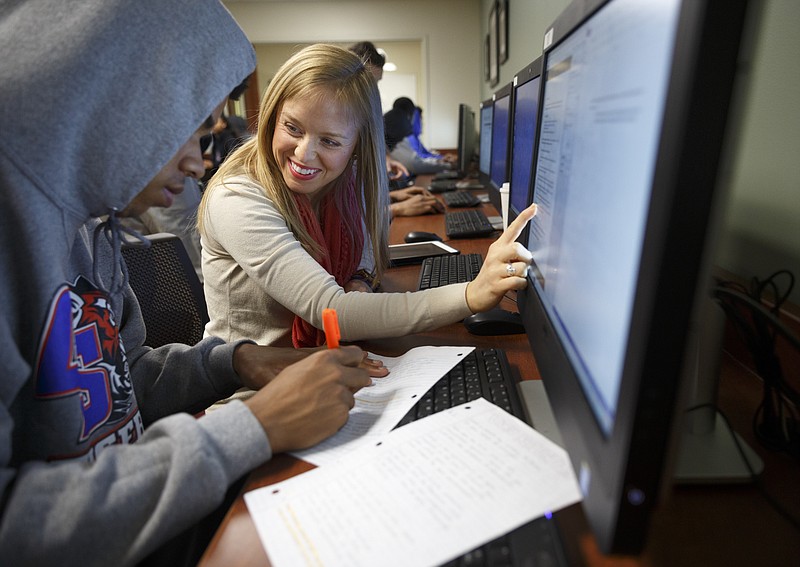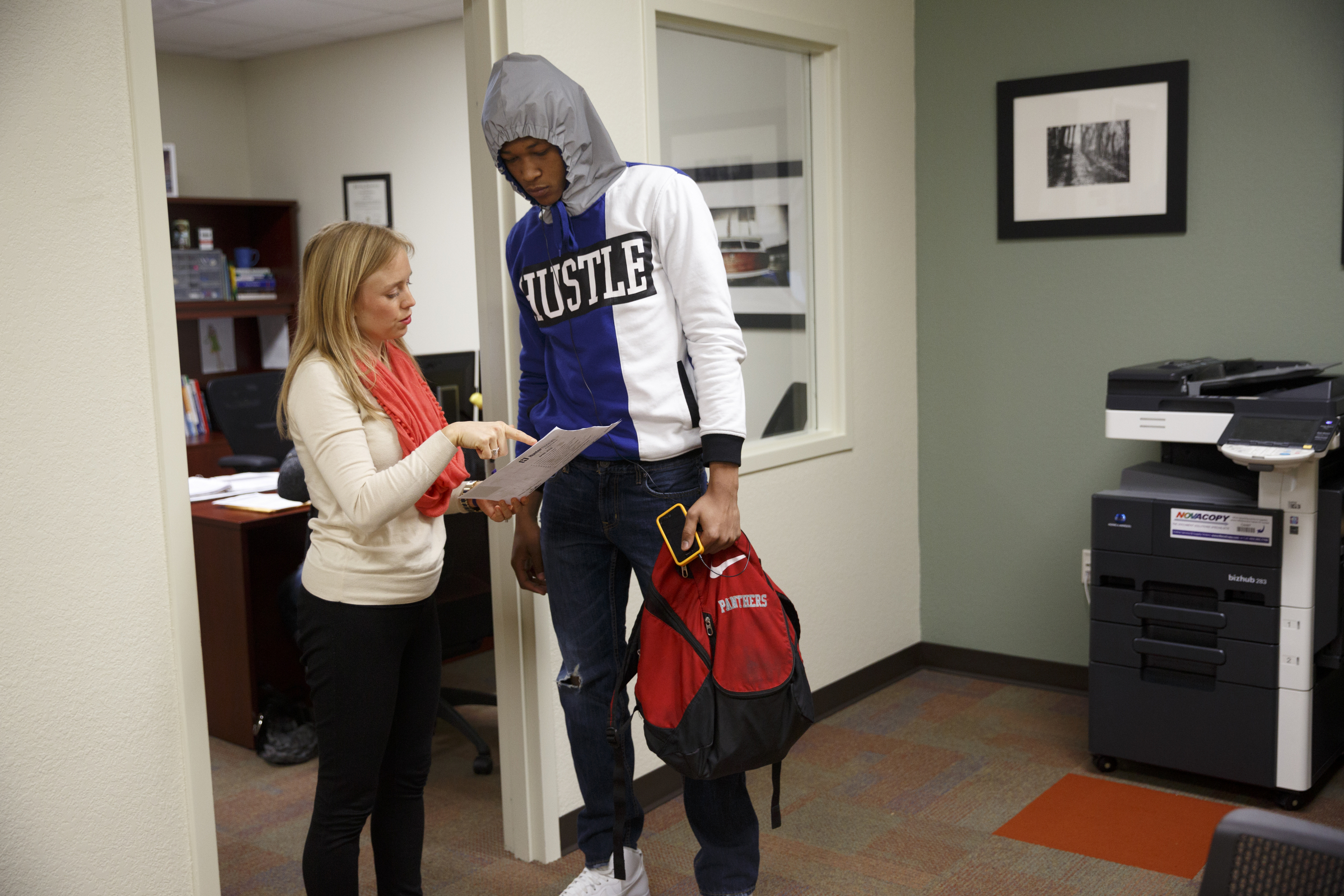Full report
To view Columbia University’s full report on the cost-effectiveness of Tennessee’s corequisite model check outhttp://ccrc.tc.columbia.edu/publications/corequisite-remediation-cost-effective-findings-tennessee.html
After state officials found too many students enrolled in Tennessee's community colleges getting stalled in remedial courses and not earning the college credits needed to graduate, they addressed the problem by restructuring the entire program last fall.
And it's working.
The Tennessee Board of Regents changed how students take remedial classes in math and writing at community colleges and universities. Now data show sharp increases in the number of students passing the courses, and greater cost-effectiveness.
Education officials say other states struggling with similar problems are looking to Tennessee for answers. Last fall's restructuring allowed freshmen deemed unprepared for college-level coursework because of low test scores to take for-credit courses, while enrolling them in a learning support class to help them master the material.
The new "corequisite remediation" model replaced earlier rules requiring underprepared students to pass a remedial course before taking the college-level course the next semester. With the corequisite program, courses are taken at the same time.Brittney Davidson, writing center director at Chattanooga State Community College, said many remedial students were nervous last fall when told they would be enrolled in college- level classes despite their low math and writing scores.
"But we assured them they would be given the support they needed to succeed," Davidson said.
Davidson, who has taught at Chatt State for five years, said she's seen a change in her remedial students' attitude: They are more motivated, knowing they can earn college credit.
"We raised the bar for our students, and because we raised the expectations, they were able to rise and meet them," she said. "We told students, 'You're smart; you're in college.'"
At Chattanooga State, corequisite students were 34.7 percent more likely to pass the college-level math course than students using the previous prerequisite model, according to data from TBR. Pass rates for writing increased by 13.6 percent.
More than half of Chatt State's incoming freshmen in 2013 and 2014 needed at least one remedial course. No data is available yet for 2015.
Tristan Denley, vice chancellor of academics at the Tennessee Board of Regents, said the success seen at Chattanooga State is mirrored statewide.
Last fall, 51 percent of students across the state passed math, and the pass rates for students in writing nearly doubled, the TBR data said.
Denley said TBR took a hard look in the fall of 2013 and saw just 12 percent of students statewide in remedial math were moving on to complete the for-credit math course the next semester.
"We couldn't let students stop there," Denley said.
He and some of his colleagues looked at corequisite programs being used at some schools across the nation and decided to go ahead and implement it statewide.
"The success of this first year has exceeded our expectations," Denley said.
He thinks the secret is that students get the help they need while enrolled in credit-bearing courses. He said under the old way, students struggled to apply what they learned in the remedial course to future classes.
TBR plans to track this first cohort of students' graduation and retention rates, and Denley believes the effects will be overwhelmingly positive.
"As a system, we are committed to trying to control the cost of higher education and make it as cost-effective as we possibly can from the state and student perspective," Denley said. "Not only is [the corequisite model] a better way to go for students, but it's also more cost-effective."
The cost-effectiveness research comes from Columbia University's Community College Research Center.
Columbia researchers found the cost of getting a student through the first college-level math class was cut in half under Tennessee's new model - from $7,720 to $3,840. In writing, the cost shrank 11 percent - from $3,750 to $3,350.
Davis Jenkins, a senior research associate at the center and co-author of the research, said the cost per successful student was lower, but the overall program cost went up because more students were enrolled.
Jenkins thinks that higher cost could be offset by additional revenue from students who stay enrolled and keep working toward a degree.
"Is it cost-effective for the student and the taxpayer?" Jenkins asked. "Our response is, resoundingly, yes."
Jenkins said Tennessee plans to continue improving the model and learning from this inaugural year.
Denley and Jenkins both said they have talked with education leaders across the state about Tennessee's success and that many states are interested in replicating the model.
"Tennessee is leading the country," Jenkins said. "People are really going to be looking at this research, and hopefully Tennessee will be the tipping point where people who have been experimenting with corequisites and seen good results are really going to bite the bullet like Tennessee and go all in."
Davidson said that's what she and her colleagues are doing at Chattanooga State. They are reviewing student surveys from last semester's class and are looking for ways to improve the curriculum and support for students.
As a teacher, Davidson thinks this model helps unprepared students ease into college, because even if they don't pass the college-level class the first semester, they know what to expect the second time around.
"And at least they got to see what college is like from the beginning," she said. "This model helps students wade into the college workload."
Contact staff writer Kendi Anderson at kendi.anderson@timesfreepress.com or 423-757-6592. Follow on Twitter @kendi_and.

